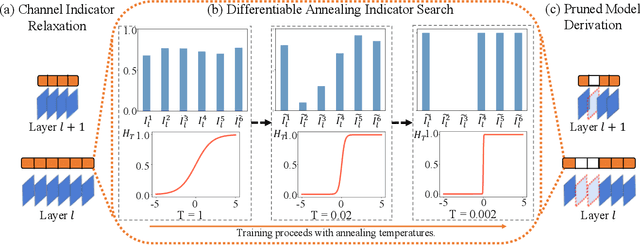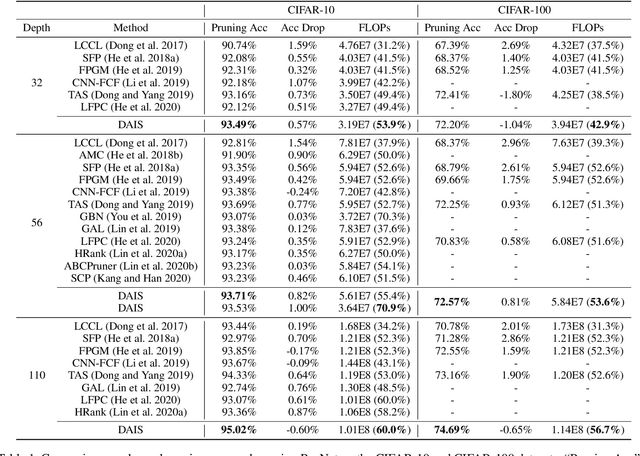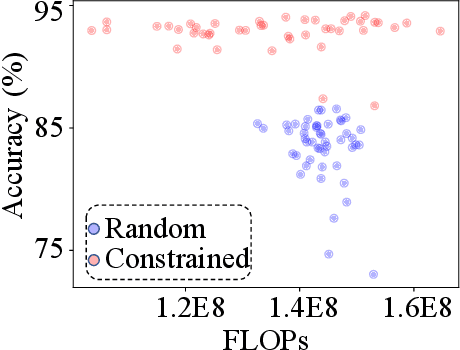DAIS: Automatic Channel Pruning via Differentiable Annealing Indicator Search
Paper and Code
Nov 04, 2020



The convolutional neural network has achieved great success in fulfilling computer vision tasks despite large computation overhead against efficient deployment. Structured (channel) pruning is usually applied to reduce the model redundancy while preserving the network structure, such that the pruned network can be easily deployed in practice. However, existing structured pruning methods require hand-crafted rules which may lead to tremendous pruning space. In this paper, we introduce Differentiable Annealing Indicator Search (DAIS) that leverages the strength of neural architecture search in the channel pruning and automatically searches for the effective pruned model with given constraints on computation overhead. Specifically, DAIS relaxes the binarized channel indicators to be continuous and then jointly learns both indicators and model parameters via bi-level optimization. To bridge the non-negligible discrepancy between the continuous model and the target binarized model, DAIS proposes an annealing-based procedure to steer the indicator convergence towards binarized states. Moreover, DAIS designs various regularizations based on a priori structural knowledge to control the pruning sparsity and to improve model performance. Experimental results show that DAIS outperforms state-of-the-art pruning methods on CIFAR-10, CIFAR-100, and ImageNet.
 Add to Chrome
Add to Chrome Add to Firefox
Add to Firefox Add to Edge
Add to Edge